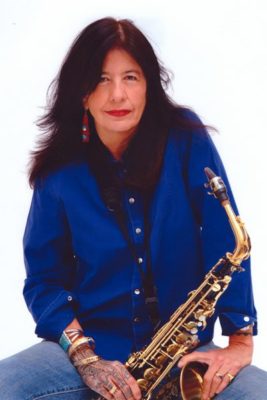
Joy Harjo, US Poet Laureate
“Renaissance” is a loaded term: often what it denotes is greater visibility rather than any real increase in intellectual or artistic activity. With that said, the past few years have seen a marked uptick in Indigenous books and writers reaching large audiences and garnering significant acclaim.
Joy Harjo (Muscogee) is the current Poet Laureate of the United States, the first Native American to fill that position. The gorgeous and harrowing poetry collection Whereas by Layli Long Soldier (Oglala Lakota) and There There by Tommy Orange (Arapaho and Cheyenne) have both won universal critical recognition, while sweeping histories of Native American history have reached out to the general reader–The Heartbeat of Wounded Knee: Native America from 1890 to the Present, by David Treuer; An Indigenous People’s History of the United States, by Roxane Dunbar-Ortiz; and Our History Is the Future: Standing Rock Versus the Dakota Access Pipeline, and the Long Tradition of Indigenous Resistance, by Nick Estes. Kali Fajardo-Anstine and Natalie Díaz speak to the Latinx/Indigenous experience of the Southwest and Mountain West; Fajardo-Anstine’s collection of short stories, Sabrina and Corina, is on the National Book Award shortlist, and Díaz’s When My Brother Was an Aztec is one of the best volumes of poetry I’ve read in the past five years.
To mark Indigenous People’s Day today, I wanted merely to open a thread here to ask if you’ve recently read any histories, fiction, poetry, or anything else that we might see as part of this wonderful reinvigoration of Indigenous culture and history. If you have a title you’d like to share, please add it in the comments!

2 Thoughts on this Post
S-USIH Comment Policy
We ask that those who participate in the discussions generated in the Comments section do so with the same decorum as they would in any other academic setting or context. Since the USIH bloggers write under our real names, we would prefer that our commenters also identify themselves by their real name. As our primary goal is to stimulate and engage in fruitful and productive discussion, ad hominem attacks (personal or professional), unnecessary insults, and/or mean-spiritedness have no place in the USIH Blog’s Comments section. Therefore, we reserve the right to remove any comments that contain any of the above and/or are not intended to further the discussion of the topic of the post. We welcome suggestions for corrections to any of our posts. As the official blog of the Society of US Intellectual History, we hope to foster a diverse community of scholars and readers who engage with one another in discussions of US intellectual history, broadly understood.
I’m commenting here more out of curiosity–I am hoping to hear from others about books and articles they’ve read recently. Certainly, I have tried to incorporate more of this history in my own teaching in recent years for both halves of the American history survey, as well as within African American history.
I haven’t read anything of late of relevance although if I did, it would be in the realm of non-fiction. That said, I want to note a new book (which I’ve yet to read) by Pekka Hämäläinen, Lakota America: A New History of Indigenous Power (Yale University Press, 2019), if only because his last work was a precious gem: The Comanche Empire (Yale University Press, 2008).
Several more somewhat tangential things: (i) This review essay by Adrian L. Jawort, “The Dangers of the Appropriation Critique,” in the Los Angeles Review of Books, might interest readers: https://www.lareviewofbooks.org/article/the-dangers-of-the-appropriation-critique/ (ii) Indigenous Peoples’ Day is in reference to the indigenous peoples of the Americas. It is distinguished from the International Day of the World’s Indigenous Peoples, 9 August, which is celebrated globally, this year’s observance being dedicated to Indigenous Peoples’ Languages (in view of 2019 being marked as the International Year of Indigenous Languages). (iii) Should anyone be interested, I have a bibliography that is largely devoted to the history, law, politics, and culture of North American Indians: https://www.academia.edu/4843868/American_Indians_Law_Politics_Culture_A_Bibliography?fbclid=IwAR1D4PVJFxgkFh-3KdqpLrVtjpA7FJ642hQGdgKZmIrxX8aM8Rbu3YSUUNU